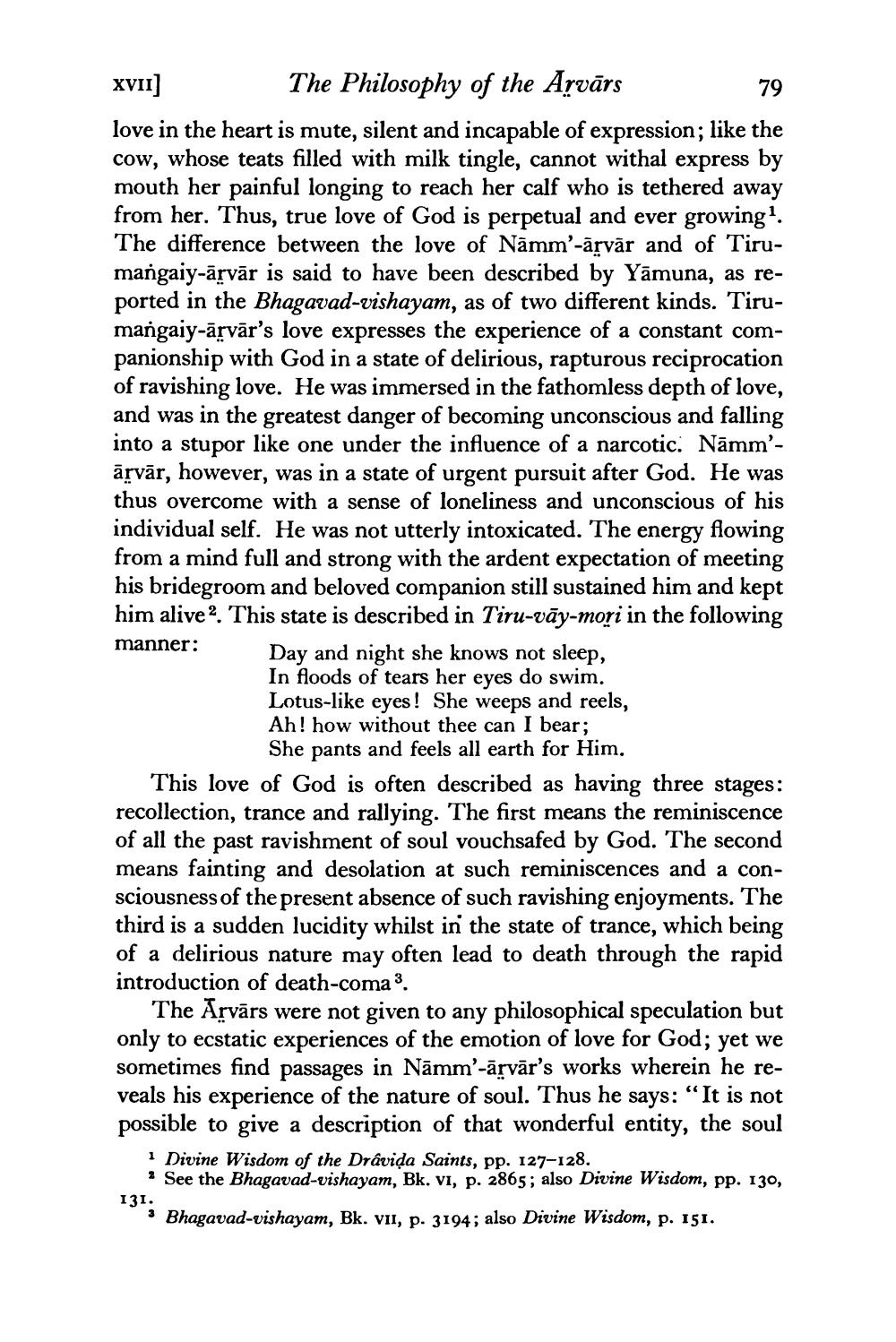________________
XVII]
The Philosophy of the Arvars
79
love in the heart is mute, silent and incapable of expression; like the cow, whose teats filled with milk tingle, cannot withal express by mouth her painful longing to reach her calf who is tethered away from her. Thus, true love of God is perpetual and ever growing1. The difference between the love of Namm'-arvar and of Tirumangaiy-ārvār is said to have been described by Yamuna, as reported in the Bhagavad-vishayam, as of two different kinds. Tirumangaiy-ārvār's love expresses the experience of a constant companionship with God in a state of delirious, rapturous reciprocation of ravishing love. He was immersed in the fathomless depth of love, and was in the greatest danger of becoming unconscious and falling into a stupor like one under the influence of a narcotic. Namm'ārvār, however, was in a state of urgent pursuit after God. He was thus overcome with a sense of loneliness and unconscious of his individual self. He was not utterly intoxicated. The energy flowing from a mind full and strong with the ardent expectation of meeting his bridegroom and beloved companion still sustained him and kept him alive 2. This state is described in Tiru-vay-mori in the following
manner:
Day and night she knows not sleep, In floods of tears her eyes do swim. Lotus-like eyes! She weeps and reels, Ah! how without thee can I bear; She pants and feels all earth for Him.
This love of God is often described as having three stages: recollection, trance and rallying. The first means the reminiscence of all the past ravishment of soul vouchsafed by God. The second means fainting and desolation at such reminiscences and a consciousness of the present absence of such ravishing enjoyments. The third is a sudden lucidity whilst in the state of trance, which being of a delirious nature may often lead to death through the rapid introduction of death-coma 3.
The Arvārs were not given to any philosophical speculation but only to ecstatic experiences of the emotion of love for God; yet we sometimes find passages in Namm'-ārvār's works wherein he reveals his experience of the nature of soul. Thus he says: "It is not possible to give a description of that wonderful entity, the soul
1 Divine Wisdom of the Dravida Saints, pp. 127-128.
* See the Bhagavad-vishayam, Bk. vi, p. 2865; also Divine Wisdom, pp. 130,
131.
3 Bhagavad-vishayam, Bk. vII, p. 3194; also Divine Wisdom, p. 151.




